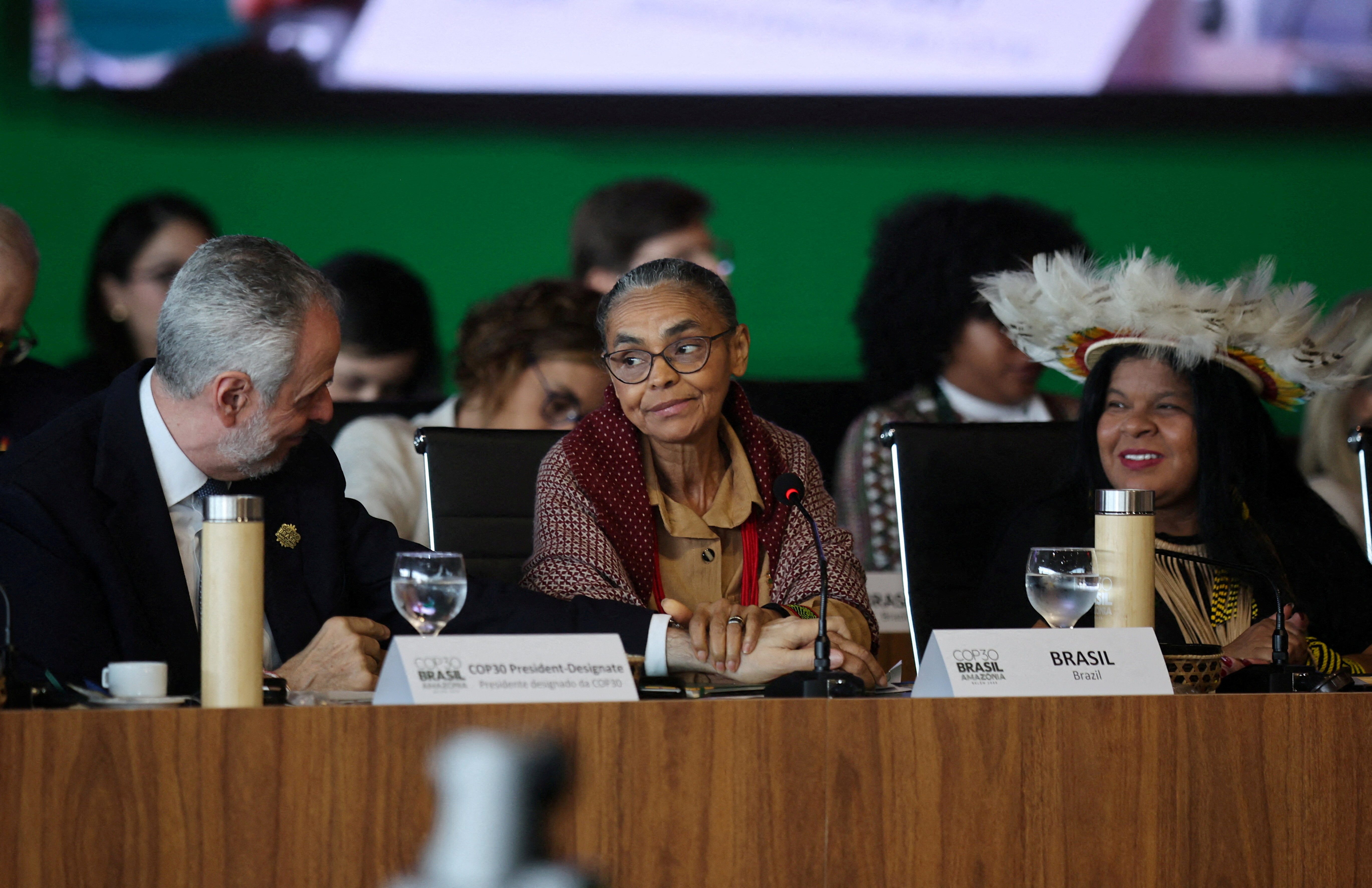The green skills gap: Educational reform in favour of renewable energy is now urgent
The demand for green skills and clean energy workers has been rising exponentially.
Image: Unsplash/Andreas Gücklhorn
Roman Vakulchuk
Head of Climate and Energy Research Group, Norwegian Institute of International Affairs (NUPI)Stay up to date:
Climate and Nature
- Despite the rapid expansion of green job opportunities globally, only a small fraction of the workforce possesses relevant skills to address climate change.
- Education systems need to adapt urgently to the demands of the energy transition and move away from fossil fuel education embedded through funding from fossil fuel industries.
- Educational programmes must incorporate sustainable and renewable energy focuses to prepare a workforce capable of supporting a greener future.
The global transition to clean energy requires industry-specific education and skills. In the last five years, the demand for green skills and workers in the field has been rising exponentially and renewable energy industries have created millions of new jobs. However, according to the World Economic Forum, despite the employment boom in clean energy, green jobs – Wind turbine technicians, solar installers, solar, wind and hydropower energy engineers, electrical engineers, energy analysts, software developers, energy storage technicians, construction managers and many others – are growing twice as fast as workers with green skills.
In 2023, International Energy Agency executive director Fatih Birol noted that the unprecedented acceleration in the energy transition “is creating millions of new job opportunities all over the world – but these are not being filled quickly enough.” Furthermore, LinkedIn’s Global Green Skills Report 2023 indicates that only one in eight people have skills relevant to climate change mitigation.
What explains this dearth in labour supply? Are universities addressing the rapidly growing shortages of a green workforce and needed skill sets?
My colleague Indra Overland and I at the Norwegian Institute of International Affairs examined these questions in a study of 18,400 universities in 196 countries. We wanted to analyze whether and how expeditiously universities have been transitioning from fossil fuels to renewable energy in their educational programmes.
One of the major and most alarming findings is that universities worldwide still produce a larger workforce for fossil fuels than for renewable energy industries.
The study demonstrates that 68% of all the world’s energy educational degrees are still focused on fossil fuels and only 32% on renewable energy. At the current rate of change, university degrees in renewable energy will reach 100% as far into the future as 2107.
Education conducive to the fossil fuel economy is still prevalent in most regions. Asia Pacific has made notable progress in supporting clean energy education, mainly due to the growing number of educational programmes in China and India. Other Asian countries are lagging behind.
The demand for green skills is particularly high in the developing countries of Central and South America, Africa, the Middle East and Eurasia; however, the universities in these regions offer only a few degrees in clean energy.
Decarbonizing universities is a challenging task
Universities fail to meet the growing demand for a clean energy workforce as they prioritize coal and petroleum studies. They may be slow to reform because of carbon lock-in. For decades, universities have received financial support from governments and oil companies and provided fossil fuel education to thousands of students.
This financing has effectively laid the ground for a deeply embedded “hard” carbon infrastructure in the form of fossil fuel-focused universities, faculties and laboratories, as well as a “soft” carbon infrastructure in the form of human capital, such as teaching staff, engineers, course materials, textbooks, curricula and ideas.
As a result, decarbonizing universities worldwide presents challenges due to resistance from various actors and the continued support and financing that universities receive from the fossil fuel industry.
The study shows that private universities have been more active than public universities in promoting renewable energy education. This enthusiasm may be because private universities depend less on support from fossil fuel players, making them less prone to carbon lock-in effects.
At the same time, educational content offered at universities has not been sufficiently scrutinized by the global clean energy community and civil society actors. At a time when many countries in the world are struggling to transition to clean energy because of the shortage of a skilled workforce, no one is talking about phasing out university faculties and degrees in fossil fuels.
Such a refocus could save many millions of dollars and reorient nations towards the needs of renewable energy education. This study can raise awareness about the problem and contribute to a more expeditious phase-out of fossil fuel education programmes at universities worldwide.
Scaling investment in renewable energy education is imperative
Another important factor concerning the limited workforce supply is that higher education has long been overlooked as a critical element of the global energy transition. As a result, today’s renewable energy education remains acutely underfinanced at the global level compared with education in fossil fuels.
For years, international organizations and private investors have prioritized important areas of energy transition, such as the production and deployment of wind and solar energy technologies, the promotion of electrification, and grid expansion. They have also focused on the employment side of the energy transition but paid little attention to education in renewable energy.
Today it can hardly be found as a priority area on their investment agenda, a situation further compounded by limited state support worldwide.
Changing this state of affairs is of utmost importance. There is an urgency to scale up investment in renewable energy education and make it a priority area for the global clean energy community. Universities and policy-makers need to prioritize the production of human capital for renewable energy.
Universities – especially in developing countries – should receive more financial support and assistance in creating new green energy faculties and degree programmes.
What's more, public and private funding that currently goes into education geared toward fossil fuels should be channelled towards renewable energy education. Ministries of education need to work together with universities to fast-track the accreditation of educational degrees in solar, wind, and hydro energy. Failure to do so could jeopardize the implementation of the Paris Agreement.
It is encouraging to see new international education initiatives. For example, the World Economic Forum’s Reskilling Revolution initiative aims to equip more than 200 million people for green jobs by 2030.
The European School of Sustainability Science and Research promotes teaching in sustainability science in Europe. Together with universities, these and similar initiatives can help drive the quality production of human capital for clean energy industries.
Accept our marketing cookies to access this content.
These cookies are currently disabled in your browser.
Don't miss any update on this topic
Create a free account and access your personalized content collection with our latest publications and analyses.
License and Republishing
World Economic Forum articles may be republished in accordance with the Creative Commons Attribution-NonCommercial-NoDerivatives 4.0 International Public License, and in accordance with our Terms of Use.
The views expressed in this article are those of the author alone and not the World Economic Forum.
Related topics:
Forum Stories newsletter
Bringing you weekly curated insights and analysis on the global issues that matter.
More on Nature and BiodiversitySee all
Andrea Willige
November 10, 2025
Marco Lambertini and Marcelo Bicalho Behar
November 6, 2025
Tom Crowfoot
November 5, 2025
Laura Fisher, David Mueller and Anika Duggal
November 5, 2025




